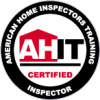What Exactly Do Home Inspectors Look For?
Every homeowner dreads the visit of the home inspector, especially when they list the property on the market. But, like death and taxes, the home inspector can't be avoided.
However, most of the fear and anxiety is borne out of misconception. The home inspector has no hidden agenda to keep you from fulfilling your dreams, but he has a job to do, and that's to make sure the inhabitants are safe.
So how can you pass a home inspection? Here are some of the most common areas which home inspectors tend to look for when they go to your property:
Dangerous electrical connection
Faulty wiring is one of the most common causes of home fires in the United States. The inspector will check whether your circuit breaker, wires, and electrical voltage are sufficient for the needs of the house. Older homes weren't built to accommodate the large number of appliances we use today.
Plumbing
Another crucial part of your home that the inspector will focus on is the plumbing. All your pipes will be checked and tested, taking care to look at the ingress and the egress. The inspector will look at the leaks or any mineral deposits that have solidified on the pipes. The water filters will also be examined to make sure they are still working. Finally, the home inspector will also test the water sample to make sure it is safe to drink.
Mold and damp areas
Black mold is extremely dangerous to your health. The Stachybotrys chararum thrive on damp environments and you will find it in the drywall, carpet, ceiling, and basement. It can cause nausea, lightheadedness, asthma, and even severe bleeding. But other mold types, especially those that are the color green, brown, and grey, are dangerous. Mold remediation services can be expensive but they are necessary.
Structural integrity
The inspector will also look at the structural integrity of your home. He will inspect the foundations, the land that the house is built on, the beams, trusses, load-bearing walls, and the roof, among others. Houses that are located in hurricane zones are extremely vulnerable to flooding, condensation, as well as cracks on the walls and floors. He makes sure that the leaks are not dripping to your electrical fixtures, which can spark a fire.
Roofing
Your roof will be checked for any missing shingles, loose rubber slates, and damaged tiles. The flashing, underlayment, truss, and the sheathing will all be examined to determine if they are still adequately sealed and affixed. The vent and the gutter, as well as the downspout, will be checked as well.
hvac
The heating, ventilation, and air-conditioning system of your home will also be inspected to ensure that it's complying with the minimum standards. The filters will also be taken out and inspected to make sure there are no deposits of dust and grime. The pipes will be checked if they are still in good condition and not corroded. The chimney structure will be thoroughly scrutinized to confirm it's still working as intended.
interior and exterior
The inspector will go through the exterior and interior components of the house to include the stairway, crawlspaces, floors, basement, doors, windows, cabinetry, counters, bathroom, smoke detectors (also carbon dioxide detectors), and even appliances.
It should be noted, however, that the inspector will not look at the age of your home. It doesn't mean that your house is over 100 years old that it will automatically get a failing mark. What's important is that everything is working as it should.
Contact Us
* - Required Field
Keystone Home Inspection is proud to be a home inspector in the Greater Cleveland, Ohio area including Cuyahoga County, Geauga County, Lake County, Lorain County, Medina County, Portage County, and Summit County.
All Rights Reserved 2026, Keystone Home Inspection - Admin Login | Privacy Policy | Digital Marketing & Social Media Marketing by Alt Media Studios










